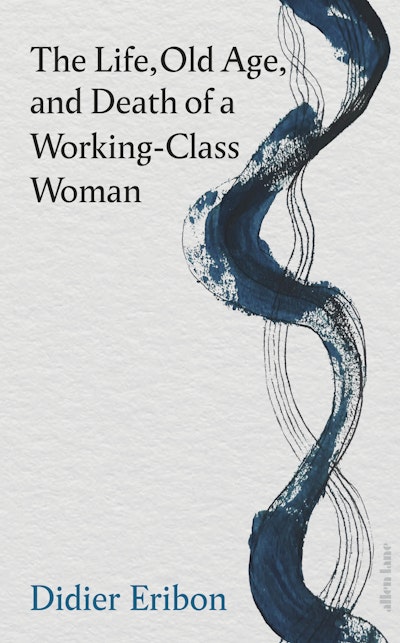- Published: 24 June 2025
- ISBN: 9780241686720
- Imprint: Allen Lane
- Format: Hardback
- Pages: 256
- RRP: $65.00
The Life, Old Age, and Death of a Working-Class Woman
- Published: 24 June 2025
- ISBN: 9780241686720
- Imprint: Allen Lane
- Format: Hardback
- Pages: 256
- RRP: $65.00
Praise for Returning to Reims
:
A deeply intelligent and searching book, one that makes you re-consider the narrative of your own life and reframe the story you tell yourself... Didier Eribon understands how deep the roots of inequality go
Hilary Mantel
Eribon offers up a magnificent example of an enlightened life liberated by theory, written in a style that deftly moves between the intimate, the social and the political
Annie Ernaux
Returning to Reims played a capital role in my life... I was overwhelmed by this book. I felt I was reading the story of my life
Edouard Louis
A frank and moving story . . . an urgent plea for the elderly to be treated with more respect
Helen Brown, Telegraph
Searingly honest . . . I found it compelling, hard to read and hard to put down
Norma Clarke, Literary Review
He recounts his mother’s life and death both as a son and as a sociologist . . . a genre that’s particularly suited to our age, with its growing understanding of how social class shapes life-paths
Simon Kuper, Financial Times
Uniquely moving... the breadth of cultural references... is stunning, and the readings of them are nuanced... His diagnosis of how old age, to nobody's benefit, is neglected in public discourse is spot on, especially in view of the decades-old debate about a sustainable British social care model
Franklin Nelson, Spectator
Eribon’s is a book laden with melancholy, but one that stresses the importance not just of solidarity and political struggle but also the fundamental social dimension of existence, and what we lose when we are cut off from others
Bartolomeo Sala, Jacobin
Praise for Returning to Reims: A deeply intelligent and searching book, one that makes you re-consider the narrative of your own life and reframe the story you tell yourself... Didier Eribon understands how deep the roots of inequality go
Hilary Mantel
Praise for Returning to Reims: Eribon's memoir is fascinating: full of fretful honesty
The Times
Praise for Returning to Reims: Eribon offers up a magnificent example of an enlightened life liberated by theory, written in a style that deftly moves between the intimate, the social and the political
Annie Ernaux




